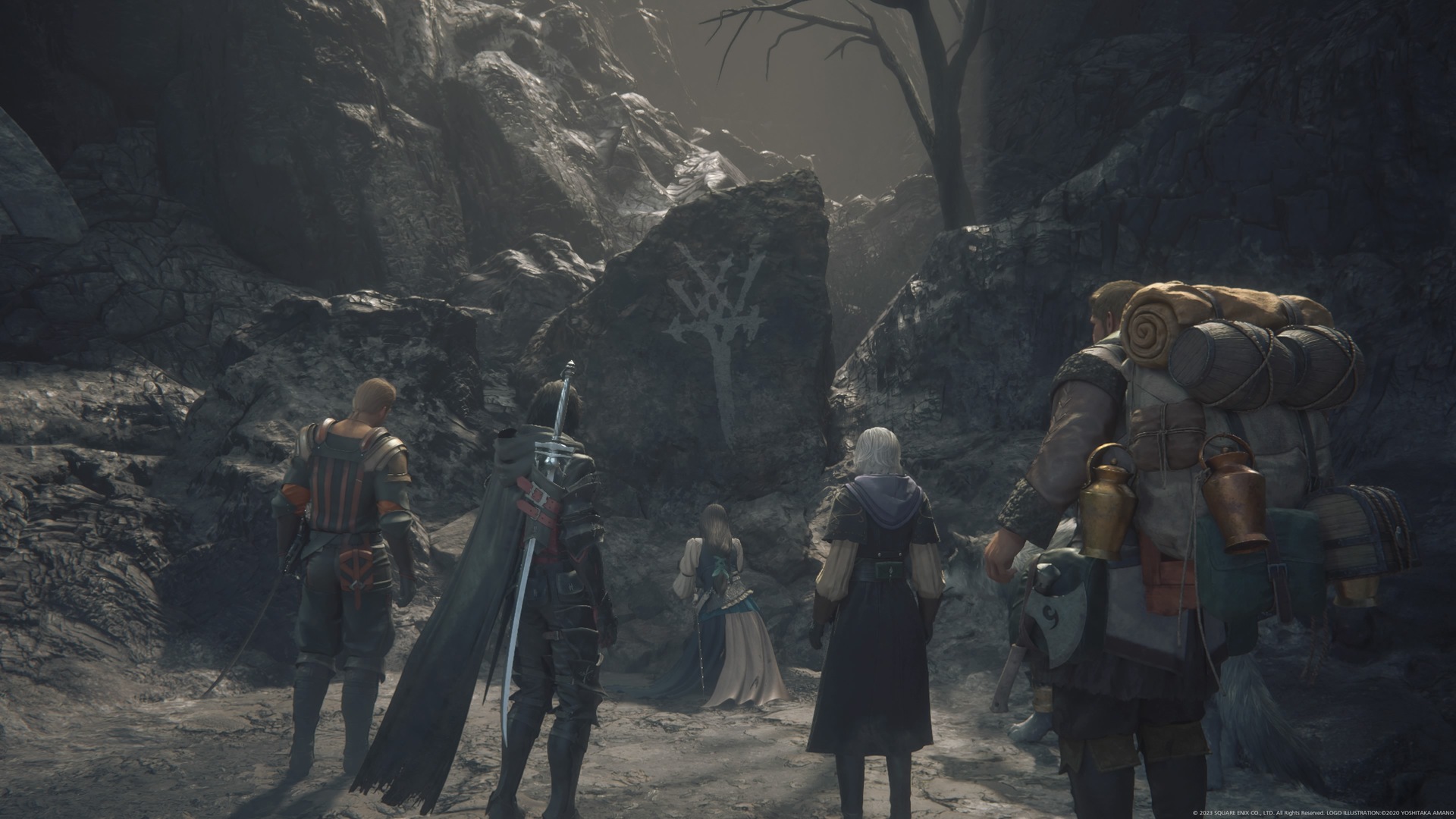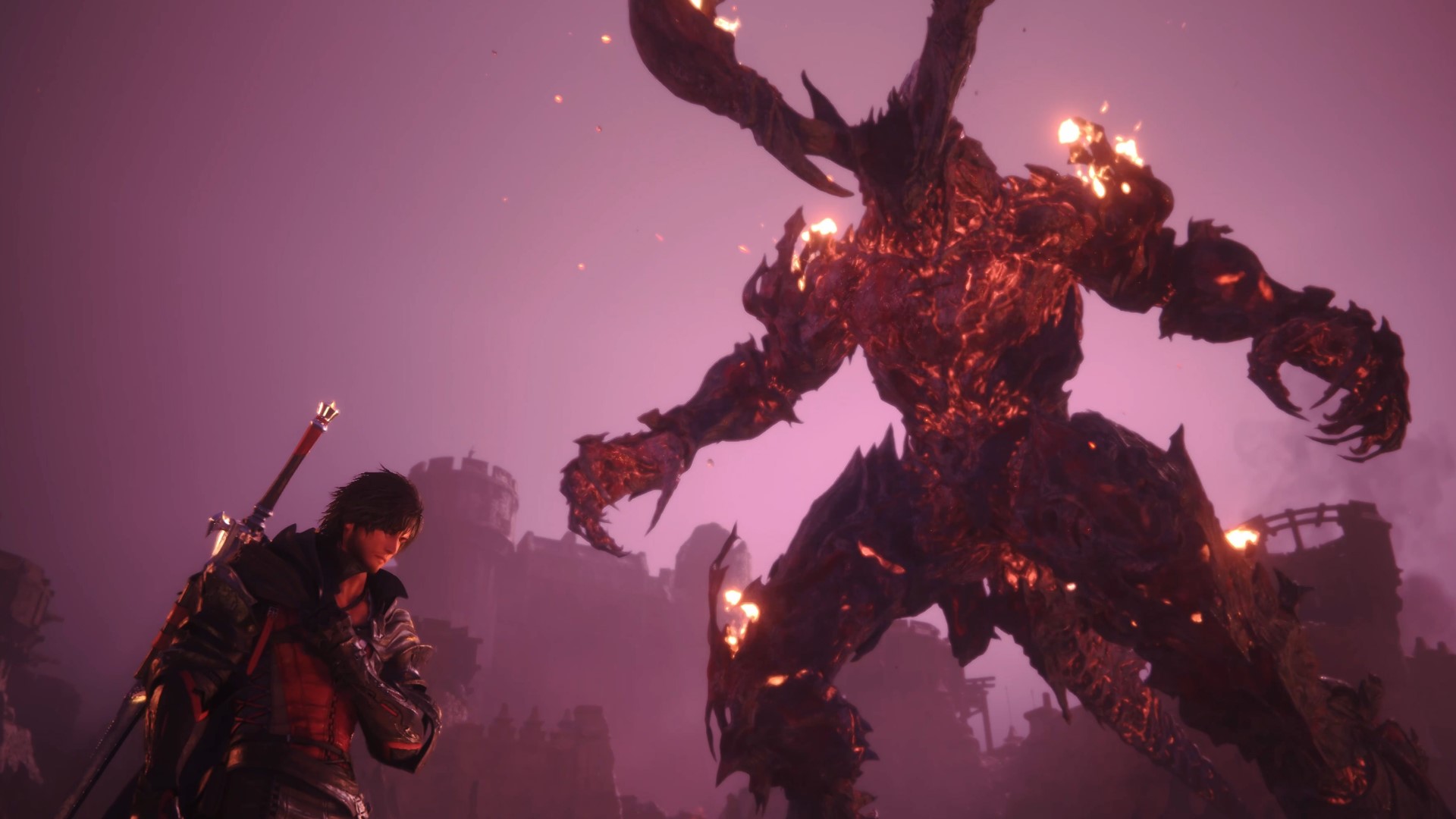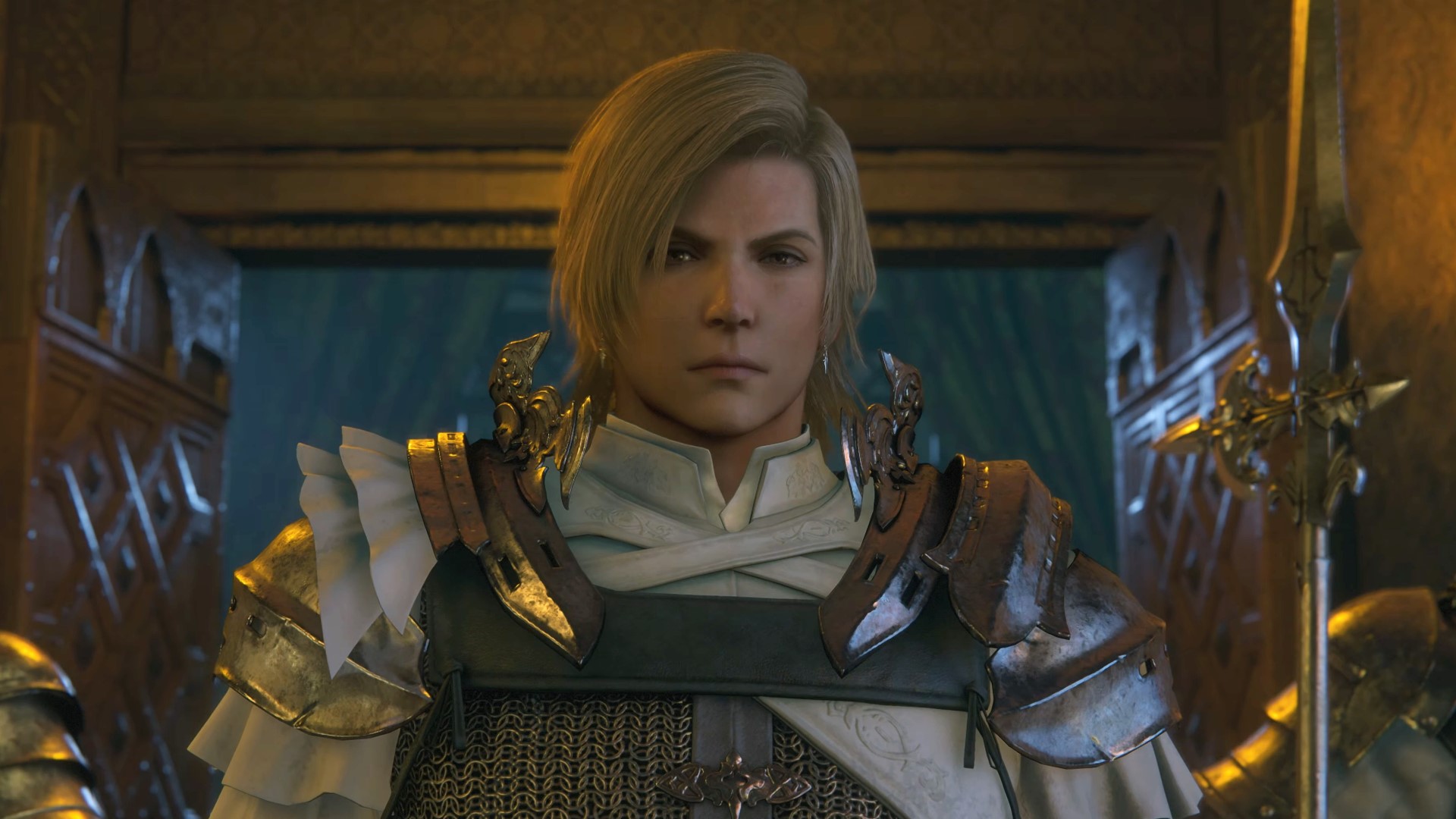The Final Fantasy 16 soundtrack stands above other game scores this year by combining modern storytelling and classical techniques
Titans of music

Sign up for breaking news, reviews, opinion, top tech deals, and more.
You are now subscribed
Your newsletter sign-up was successful
Final Fantasy 16’s score doesn’t just make for riveting, dramatic listening. It’s a storytelling tool in its own right, that composer Masayoshi Soken uses to enhance the action role-playing game (RPG) by deploying recurring musical patterns and themes to embolden the title's already rich narrative structure. Soaring boss battle tracks like Titan Lost and Away are now seared into my brain, their memorable and distinctive sounds easily among some of the best the games industry has ever produced.
This quality no doubt helped the fantasy RPG win the coveted Best Score & Music at The Game Awards 2023. However, the approach taken by Soken and his team was far more thoughtful and nuanced than you might initially think.
For instance, rather than focus on an individual ‘main theme’, Soken opted to lean into Final Fantasy 16’s distinctive roster of main characters. While it’s only possible to play as protagonist Clive, the game’s wider story is shaped by a small handful of ‘dominants’ - powerful individuals who can transform into immense magical monsters called Eikons. This created a musical opportunity for Soken which he was keen to capitalize upon.
“There isn’t really one song that you can call the main theme,” said Soken in an interview with Game Informer. “[This is] because Final Fantasy 16 is a game about all of these very important and very standout characters, as well as their Eikons, and the relationship between the Eikons and the characters and their dominants. We view these all as very, very important and we didn’t want to single out just one; we wanted to make them all […] equal in importance.”
This is the Final Fantasy 16 soundtrack’s secret weapon. Each of the dominant’s respective themes is given equal love and attention, helping to create a vibrant musical jigsaw where all the pieces fit together to make something greater than the sum of its parts.
Absolute fire

Spoilers ahead for Final Fantasy 16
Each theme tells you volumes about its associated character, not just through lyrics, but also with the feel of its dynamics, melody, texture, and rhythm. Let's look at Titan Lost, a thrilling rap-rock track that plays during Clive’s showdown with trade magnate Hugo Kupka after the latter transforms into a mountain-sized rock monster (it’s Final Fantasy, trust me, it makes sense in the game). The track is pulse-pounding, aggressive, violent, and brutal, departing from the more traditional, classical, and orchestral feel of the majority of the game’s soundtrack to offer something fresh and jarring.
These qualities are all reflected in the character of Hugo himself. Like his theme, he is also aggressive, violent, and brutal, acting as a foil to Clive. Where Hugo uses his strength to control those around him and to express his toxic desires for power and conquest, Clive grows as a person and overcomes his trauma. As he matures, our hero forges lasting friendships and works toward a common, noble goal: saving the world.
Sign up for breaking news, reviews, opinion, top tech deals, and more.
It’s very trope-heavy stuff, but the music captures it all very effectively. This contrast between Clive and Hugo is also mirrored in the lyrical differences between their themes, too. Clive’s theme, Find the Flame, is triumphant and warm with lyrics about self-discovery. “Your bleary bloodshot eyes open wide in the dawn. Let the light in and brighten the shades that sleep inside you.” Find the Flame’s soaring melodramatic optimism places it at odds with the “fury and rage” sung about in Titan Lost.
Not only do all of Final Fantasy 16’s character themes stand on their own, but they bounce off of each other. Musical contrasts reflect narrative contrasts, enriching the entire affair.
This contrast between Clive and Hugo is mirrored by their themes
Barnabas Tharmr, King of Waloed and a major antagonist in the game’s third act, has a deeply sinister theme of his own, strongly contrasting with Titan Lost and Find the Flame with its creeping, foreboding chords. Barnabas himself is an ageless schemer who’s been plotting for years to bring about the return of his evil benefactor, the nefarious demigod Ultima. It’s only fitting that his theme, Furor, should reflect those vibes with its chilling strings and unnerving undertones.
In a clever move from Soken, the subtle undercurrent of electric guitars in Furor hints at something more. In Final Fantasy 16, the story’s more inhuman characters, be they aliens or machines, tend to be represented with modern instruments. For instance, the literal robot demi-god from the game’s new Echoes of the Fallen DLC is musically represented by a breakneck techno track - also a reference to a boss theme from Final Fantasy 14, which Soken also scored.
Classically trained

These themes aren’t just one-and-done for Soken and his crew, either. Tunes from different character themes repeat themselves, woven throughout the wider soundtrack. This is a compositional technique that has roots in classical music, specifically a German composer called Richard Wagner who wrote hundreds of works during the Nineteenth Century and was a huge part of what’s known as the Romantic period of musical history. Wagner was one of the first to use what’s called a ‘leitmotif’ which is a short tune associated with a person, place, or idea, like the ‘Gold’ melody that he wrote for Das Rheingold, one of his most famous operas.
Since Wagner’s day, many modern composers have used this approach to great effect. John Williams’ Imperial March - the theme of the sinister Darth Vader - recurs all across the Star Wars franchise whenever a musical allusion to one of the biggest villains of the setting needs to be made. This is a move Soken uses liberally in Final Fantasy 16, too, both with themes he composed himself and with Nobuo Uematsu’s Prelude - a famous theme that’s reused across almost every Final Fantasy game. Bits of Prelude are scattered throughout Final Fantasy 16’s soundtrack in an effort to connect this latest entry in the series back to its predecessors. Land of Eikons, the game’s main menu theme, is a great example.
In a similar way, Brotherhood, a pensive track that plays early on in Final Fantasy 16 during an emotional heart-to-heart between Clive and his younger brother, reuses musical phrases from a boss theme later on. When you hear the melody again in Away, the dramatic and tumultuous theme that plays when the two battle in their demi-god forms later in the story, your heart is invited to break. Hearing the theme in this gentler context makes their tragic battle more painful, adding an extra layer of emotional depth to the scene that otherwise wouldn’t be there.
Final Fantasy 16’s music isn’t just catchy; it has something to say, too. The soundtrack skillfully takes advantage of the descriptive power of music to help enrich the game’s story. While not a perfect game, Final Fantasy 16’s soundtrack is a masterpiece, going out of its way to make statements about the RPG's characters and to tie disparate scenes together. This is why, for me, Final Fantasy 16 has the best and most interesting video game soundtrack of the year.
Want more cracking titles? Our lists of the best single-player games and best RPGs have you covered.

An editor and freelance journalist, Cat Bussell has been writing about video games for more than four years and, frankly, she’s developed a taste for it. As seen on TechRadar, Technopedia, The Gamer, Wargamer, and SUPERJUMP, Cat’s reviews, features, and guides are lovingly curated for your reading pleasure.
A Cambridge graduate, recovering bartender, and Cloud Strife enjoyer, Cat’s foremost mission is to bring you the best coverage she can, whether that’s through helpful guides, even-handed reviews, or thought-provoking features. She’s interviewed indie darlings, triple-A greats, and legendary voice actors, all to help you get closer to the action. When she’s not writing, Cat can be found sticking her neck into a fresh RPG or running yet another Dungeons & Dragons game.


